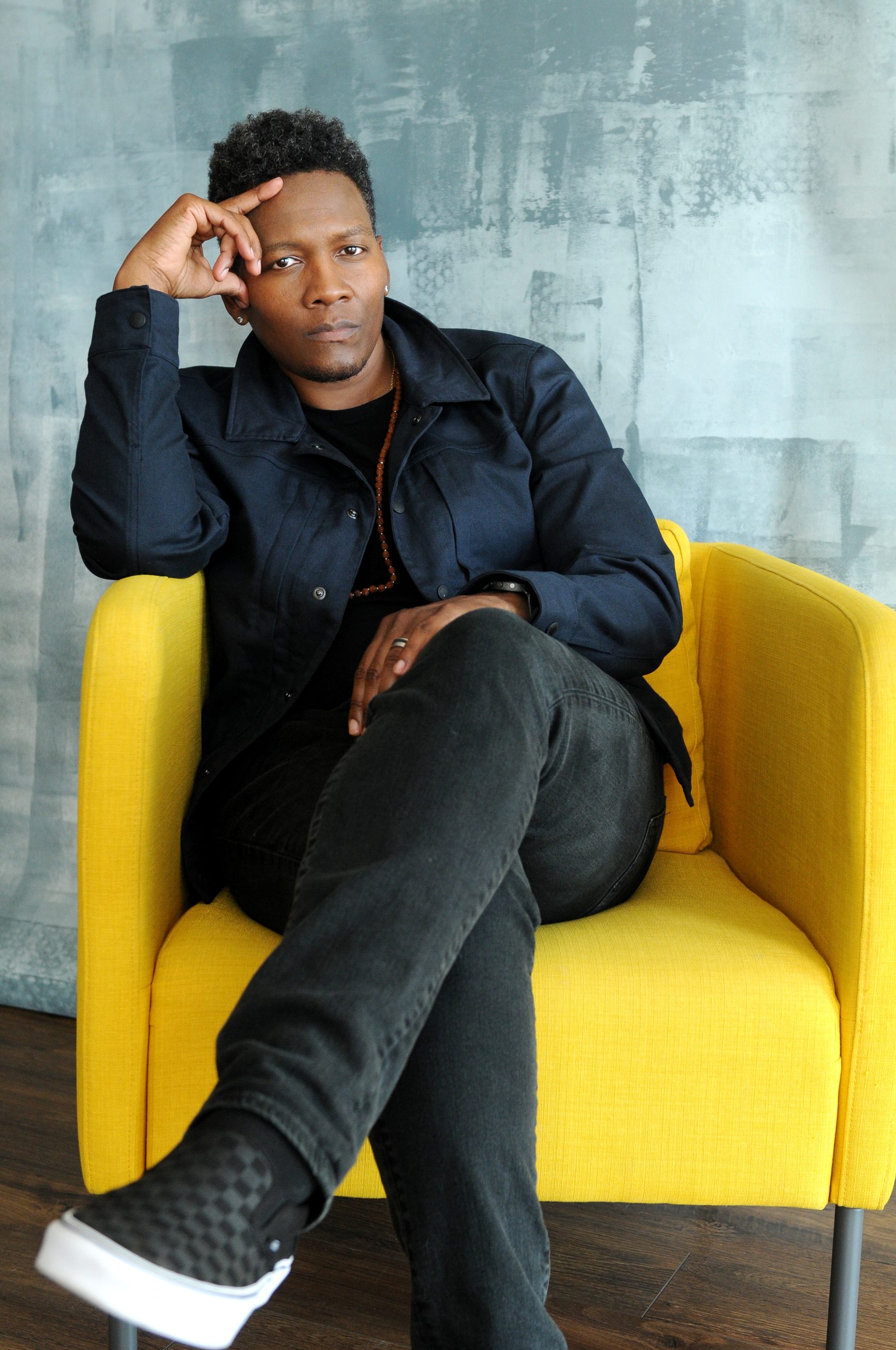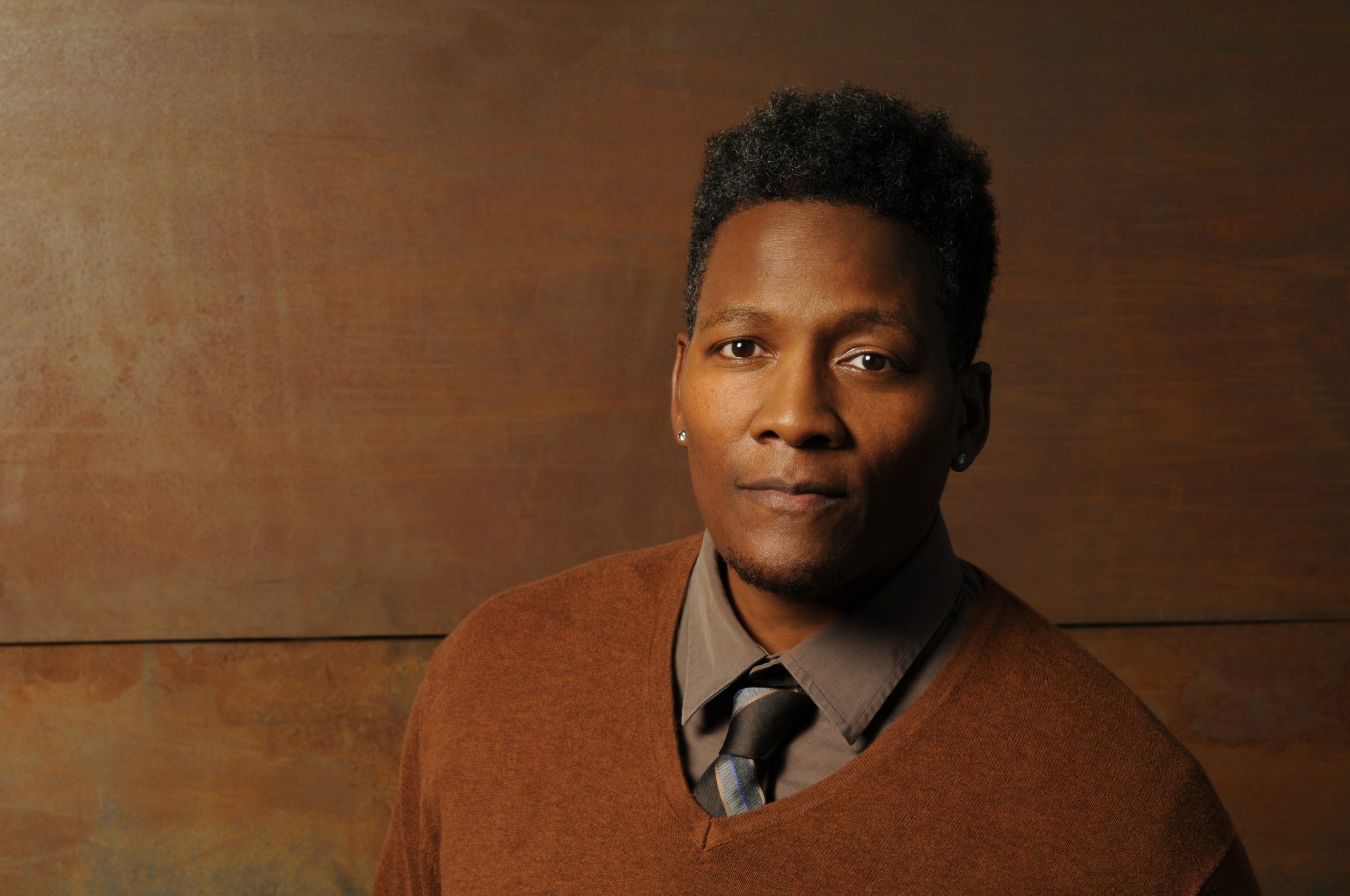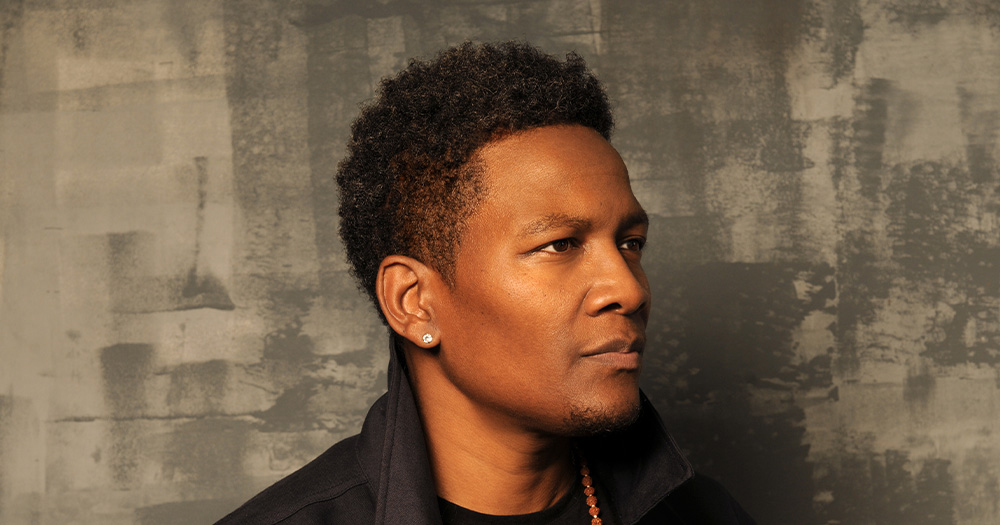Growing up, Lea Robinson yearned to see someone who looked like them on television. Born in Kentucky, the actor found a love for movies at a young age. They manifested their dream and pursued acting, paving the way for Trans and non-binary folks onscreen.
Most recently, they have won the hearts of the world through their poignant portrayal of Uncle Bertie in Amazon’s hit new series, A League of Their Own. The show was created by Abbi Jacobson and Will Graham and has been met with critical acclaim for its authentic representation of LGBTQ+ stories.
I had the pleasure of sitting down with Lea on a Monday morning/evening (LA time difference!) and we talked about their acting journey, bringing Bertie to life and the importance of visibility on screen.
I hope you enjoy reading our conversation as much as I enjoyed having it!

Can you please introduce yourself to our readers?
My name is Lea Robinson. It’s spelt Lea and I pronounce it Lee, and I am Trans-identified non-binary. I grew up in a small town in Kentucky, where I felt out of place. My childhood was hard because of my identity. How I really got into acting was because when I was a little I didn’t see anyone who looked like me and I used to love movies and watching television. I feel like if I had seen someone who looked like me, then I would have known that “You’re not alone. You’re okay, you’re not this different, weird person in the world”. So I was able to find community obviously and find that support and find that comfort. As an adult, the force that drove me was that young people need to see me as this Trans non-binary Black person. We don’t see those types of people enough. That’s why I really stuck my feet into acting, besides loving the opportunity to grab a beautiful character and breathe life into them and do this amazing work with it. The driving force for me is always the importance of visibility.
What’s it like being able to be the representation that you didn’t have?
It’s a blessing. I prayed about that for so long and manifested that for so long. We all have different ways of manifesting our goals and being spiritual and figuring out what we want in life and trying to go after it. The fact that I’m able to do roles like Bertie in A League of Their Own and also Reverend Ty Harmon in Lena Waithe’s Twenties – in that show, I was able to play this Black, non-binary reverend who helped the main couple talk about their upcoming marriage and also help the male character in that relationship to step into his bi identity. That role was powerful. I had so many people contact me from everywhere with messages saying this was amazing. I’m so glad this is happening. We don’t see it enough. The fact that I’m able to be a vehicle for visibility is a huge blessing. I’m so grateful for Bertie, this character, you know, the foundation was there, all I had to do was step in and really dive into how to make it personal. Bertie was just great. He’s a huge part of my heart.
How did Bertie come about?
I was shooting the second episode that I was in of Twenties and my manager was like, “Lea, we’ve got a role for you, I’m going to submit you for this.”. She sent me the breakdown for it to prepare for the audition and I was like, “Woah, A League Of Their Own, that was a movie and I’ve seen it. It’s a great movie, I love it”. I didn’t feel super connected or represented in it, even though I was inspired by athletics because I was a student-athlete back in the day. I understood the connection between athletics and sports and being a part of a team and how powerful that was. There were a lot of things that did resonate with me with the film A League of Their Own, and just the visualisation of the rights that women didn’t have. When the Black woman picks up the ball and throws it, I always wondered what her life was like. There’s a story that’s not being told. Granted, they told the story they could tell at the time. When I started really reading the script on the side and Bertie’s character description, I was floored. I was immediately in love with the possibility. That’s when I really knew that this series was trying to do something different, trying to build on and tell those stories that we didn’t get a chance to see in the original. I felt like the first part of the process was really auditioning, getting to know Bertie, getting to know his relationships with everyone that they have relationships with and then getting to know overall what was happening in the show. By the time I got the role, the corkscrew had come off and it was real. Unforgettable, to be honest.
Were there open conversations with the writers about Bertie’s arc? Were you involved with how he was going to evolve over the course of the show?
Yeah they were very open. I made some choices and brought those to the audition. I had a paragraph about who Bertie is and then I got to build around Bertie. Who is Bertie in the scene? There are so many clues as to who Bertie is that I can pull out and pop into who Bertie is and create a bio about who he is and how he moves to the world. And with the writers, yes it was like “Who is Bertie? What do you think Bertie needs in this scene?” So it was an incredibly collaborative effort. I always felt like there was space to be like, “Hey, maybe Bertie would do it this way”. I’m also a writer, and I know when you put your words on a piece of paper, sometimes it’s hard to be collaborative. A lot of times, for me personally, it’s better to be collaborative, because I want people bringing their full interpretations of things to scenes. It really felt like it was super inviting and collaborative for me to have the freedom to really develop Bertie and to be present in those moments. The pain that Bertie felt, I could see it, I could feel it, you could see it, you could feel it. The foundation and the writing was just amazing.

SPONSORED CONTENT
When you get to be collaborative in that way, are there any elements of your own personality or experiences that you were able to bring to Bertie?
I think that Bertie and I share a lot of the ways that Bertie is walking through the world. Sometimes you’re afraid, because of things that are happening around you, or you’re stepping out in the ways that you exist, like your gender identity and expression. Sometimes you don’t know what’s going to happen. Sometimes it’s super empowering, sometimes it’s a mixture of all those things. As a Black person who has lived and grown up in this country and experienced racism, as well as being a Trans and non-binary person, I’ve experienced those things and they were scary. Those were definitely things I felt like I could relate to with Bertie. The 1940s were very different. Bertie is existing the way Bertie exists, and also dealing with heightened racism and segregation and needing to be in his community, but also navigating those spaces as someone that people look at like they’re different. I did a lot of research on the historical experiences of Trans and non-binary folks just to get an idea of what it must have been like to walk in those shoes. There’s a book called Black on Both Sides that I was reading, and I’ve talked about that a little bit, but there’s this one person in particular midway through the book, who is this Black, male passing, born female person who is navigating this world and there are pictures of them. It helped me to get grounded in what that experience may have been like for Bertie. It also felt like an honour to be able to put a voice to someone who existed during that time. There were some Berties during that time and now, they finally have an opportunity to be seen, to be heard, and to be acknowledged.
Was there any advice that Bertie gave to Max that you were particularly inspired by? He’s a very wise character. I’m thinking about the scene when Bertie and Max are on the bench before Max goes off to play baseball. That was such a special scene.
That was such a special scene for a number of reasons, everything that you’re saying, you know, that whole scene of them both walking out of the bar, and Bertie being like, “It’s supposed to be hard”. I loved that moment. Also, Bertie sitting down and sharing “Okay, check this out, check this out, find this person” sharing that piece with Max to send them off and then also saying “Mind your heart”, giving Max that little nugget of have a good time but keep an eye out as well. That scene was so moving for me personally especially when Max says “Thank you, Uncle Burt”. Just the idea of being somebody’s uncle. Someone that is so impactful and important in their life. There are a lot of things that got into my heart and I expected that they would do but with this scene, I didn’t really expect that it would because it was such a cool scene. We’re sharing this moment. There are so many other moments about that, that were so in my heart. But when Chanté (Max) said that in that scene, I almost lost it. I gathered myself, but it was just really a deep moment for me.
I loved how confident Bertie was in his suits. How did you channel that confidence in him?
A couple of things, clothing always does it for me. I was channelling it through the transformation of those beautiful amazing suits and nice clothes that had history to them. Bertie is walking through the world in a certain way. So as Bertie is preparing to go to the bowling alley, Bertie is prepared for the fact that Bertie might get some looks so Bertie might not be completely accepted. Bertie’s gonna need to walk with his head up and be in that space and be there for Max and normalise things and shake things up a little bit at the same time. That’s also some of the groundwork that I do before putting that on and after putting that outfit on and walking into that space as Bertie. Always remembering that this is for all the Berties who were walking into those spaces and trying to live their lives and having joy and creating opportunities for joy. This is what I’m doing
Have you had people reach out to say thank you? What have the interactions been like?
It’s incredibly heartwarming. I think a lot of folks are seeing themselves for the first time in this way, and it’s been powerful for them. I’m so grateful for everyone who’s reached out and either told me their story or told me who they are and told me their experience, and how the show’s impacted them or how Bertie’s impacted them. I’m just incredibly grateful for those responses. I was so hopeful that Bernie would have that impact on someone. If one person is impacted by Bertie, then we are super successful, right? So to have that be a part of this moment is just so powerful. I’m just happy for Bertie, you know, the Berties whose voices weren’t heard or who weren’t visible, and for the young people who are going to see it, and for anyone who needs to see themselves right now, like I needed to see myself. I’m really grateful for the opportunity to be a part of something that can move someone. People are moved by every aspect of this show, every relationship, every conflict, it’s just such a great show. To be able to be a part of Bertie’s story is the biggest blessing.
Lea Robinson, thank you so much for your time, you are an incredibly insightful soul and it was an honour to speak with you.
© 2022 GCN (Gay Community News). All rights reserved.
Support GCN
GCN is a free, vital resource for Ireland’s LGBTQ+ community since 1988.
GCN is a trading name of National LGBT Federation CLG, a registered charity - Charity Number: 20034580.
GCN relies on the generous support of the community and allies to sustain the crucial work that we do. Producing GCN is costly, and, in an industry which has been hugely impacted by rising costs, we need your support to help sustain and grow this vital resource.
Supporting GCN for as little as €1.99 per month will help us continue our work as Ireland’s free, independent LGBTQ+ media.
